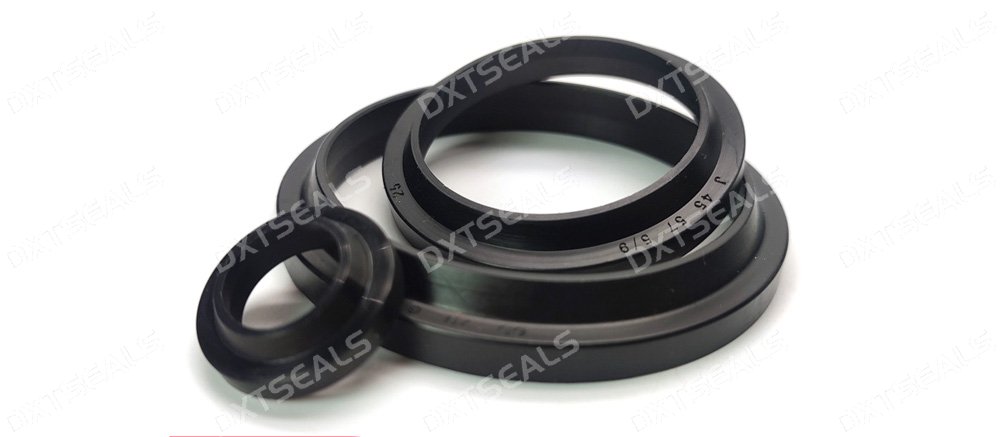
In industrial settings, effective sealing solutions are critical to maintaining the performance, safety, and efficiency of machinery and equipment. Rubber gaskets are one of the most commonly used components for sealing in industrial applications, offering unmatched flexibility and reliability.
This article explores the key benefits of rubber gaskets, their versatility, and why they are an indispensable part of industrial equipment.
1. The Role of Rubber Gaskets in Industrial Equipment
Rubber gaskets serve as a barrier between two surfaces to prevent leaks, minimize vibrations, and provide insulation. They are widely used across industries such as manufacturing, construction, energy, and food processing. Their adaptability makes them suitable for various applications, including:
- Sealing pipelines and valves
- Protecting sensitive equipment from dust and moisture
- Ensuring airtight connections in high-pressure systems
2. Key Benefits of Rubber Gaskets
a. Excellent Sealing Performance
Rubber gaskets create a tight seal, preventing leaks of liquids or gases even in high-pressure environments. This is crucial for systems such as pumps, compressors, and pipelines.
b. High Durability
Rubber gaskets are designed to withstand tough industrial conditions, including repeated compression, vibration, and exposure to harsh chemicals. Materials like Nitrile (NBR), EPDM, and Viton ensure long-lasting performance.
c. Chemical and Temperature Resistance
Certain rubber materials are highly resistant to chemicals, oils, and extreme temperatures. For example:
- Viton resists high temperatures and aggressive chemicals.
- EPDM excels in resisting weathering, UV rays, and steam.
This makes rubber gaskets suitable for environments such as chemical plants and oil refineries.
d. Versatility and Customization
Rubber gaskets can be molded or cut into various shapes and sizes to meet specific industrial requirements. They are available in standard designs or can be customized for unique applications.
e. Cost-Effectiveness
Compared to metal or composite gaskets, rubber gaskets are often more affordable while still delivering excellent performance. Their durability reduces the need for frequent replacements, further lowering costs.
f. Noise and Vibration Damping
Rubber’s elasticity helps absorb vibrations and reduce noise in industrial machinery, contributing to a quieter and more stable operation.
3. Types of Rubber Gaskets for Industrial Equipment
Different rubber materials offer specific advantages depending on the application. Common types of rubber gaskets include:
- Nitrile (NBR): Ideal for oil and fuel resistance in automotive and industrial applications.
- EPDM: Excellent for outdoor use due to its resistance to weathering, ozone, and UV rays.
- Silicone: Suitable for food-grade and medical applications, thanks to its non-toxic and heat-resistant properties.
- Viton: Perfect for high-temperature and chemical-resistant applications.
- Neoprene: Widely used for its durability and resistance to oils and chemicals.
Selecting the right material depends on the operating environment and the specific requirements of the industrial equipment.
4. Applications of Rubber Gaskets in Industrial Equipment
Rubber gaskets are utilized in a wide range of industrial applications, including:
a. Oil and Gas Industry
Used in pipelines, valves, and pumps to prevent leaks and ensure safe operation under high pressure and temperature conditions.
b. Manufacturing and Machinery
Rubber gaskets provide reliable sealing for equipment such as compressors, conveyors, and hydraulic systems.
c. Food Processing
Food-grade rubber gaskets, often made of silicone, are essential for maintaining hygiene and sealing in equipment like mixers, tanks, and processing machines.
d. Power Plants
Rubber gaskets ensure efficient operation in boilers, turbines, and other high-temperature systems.
e. Automotive and Aerospace
They provide sealing solutions for engines, fuel systems, and exhaust systems, ensuring safety and performance.
5. Factors to Consider When Choosing Rubber Gaskets
When selecting rubber gaskets for industrial applications, consider the following factors:
- Material compatibility: Ensure the gasket material can withstand the chemicals and temperatures in the application.
- Pressure and temperature range: Choose a gasket designed for the specific operating conditions.
- Size and thickness: Proper dimensions are crucial for effective sealing.
- Compliance with standards: For food-grade or medical applications, ensure the gasket meets relevant certifications such as FDA or ISO.
Conclusion
Rubber gaskets are indispensable components for industrial equipment, offering exceptional sealing performance, durability, and adaptability. Their ability to withstand harsh conditions, resist chemicals, and reduce noise makes them ideal for a variety of applications across industries.
By selecting the right material and design, businesses can enhance the efficiency and reliability of their machinery while minimizing downtime and maintenance costs. Rubber gaskets truly stand out as a cost-effective and versatile solution for industrial sealing needs.
